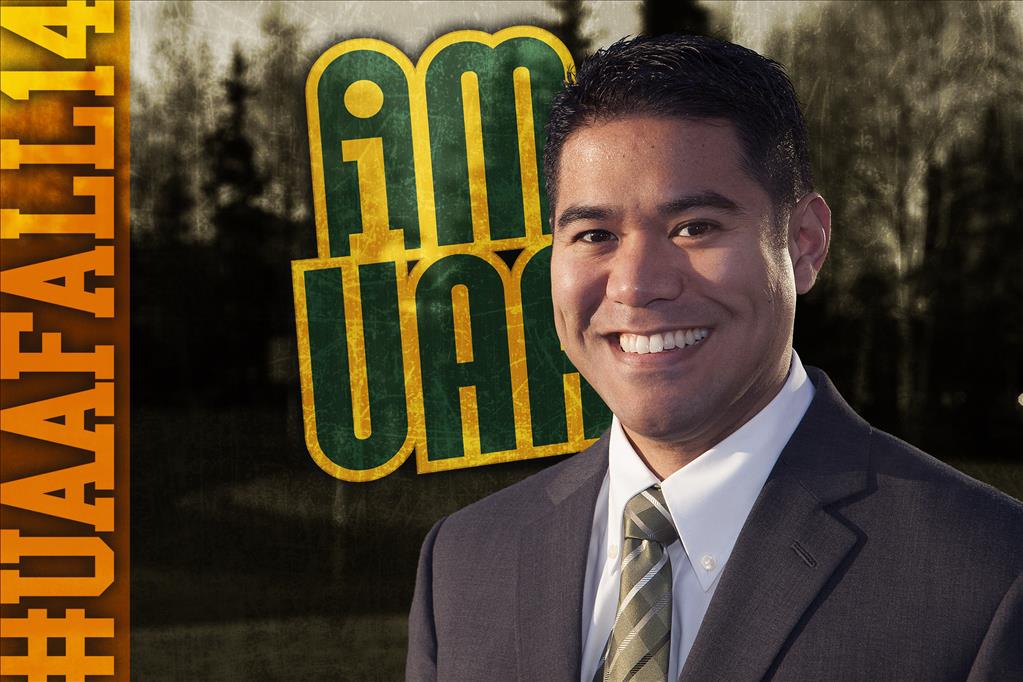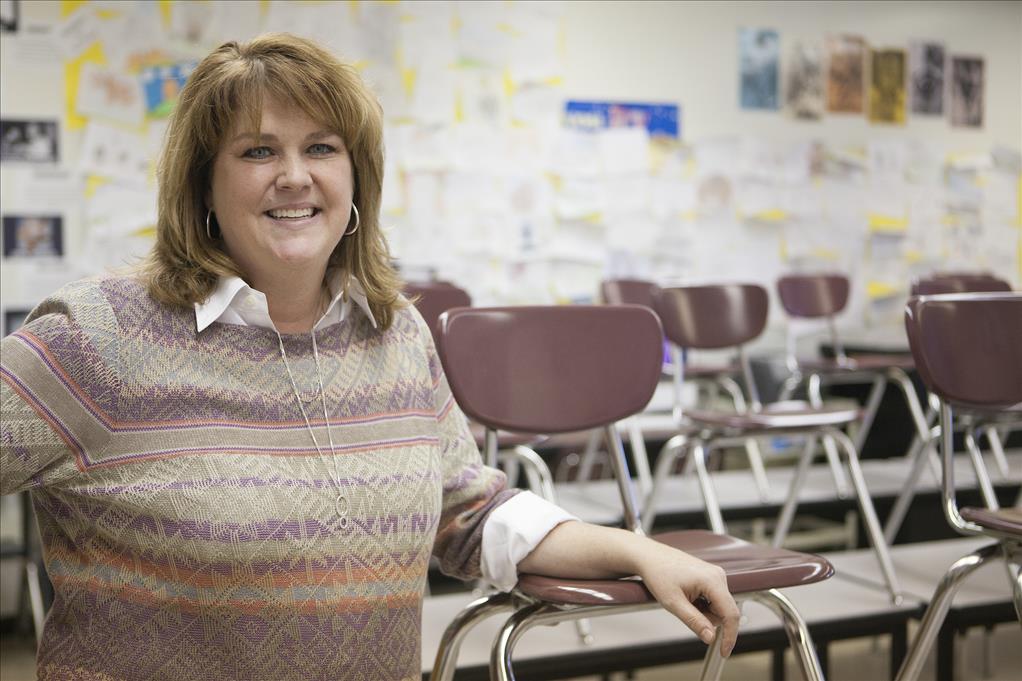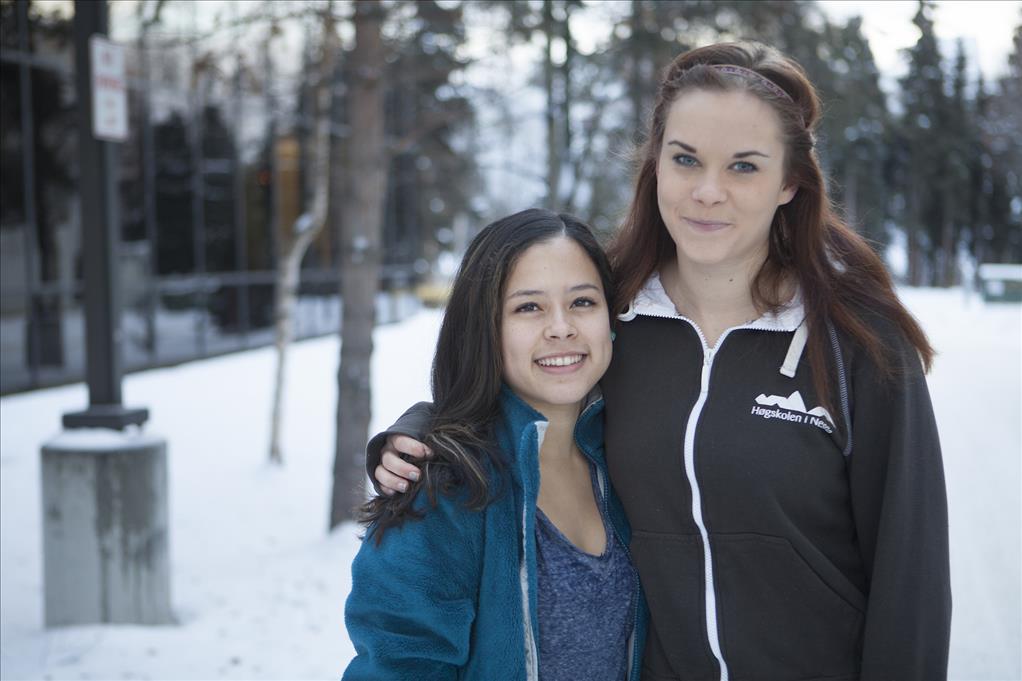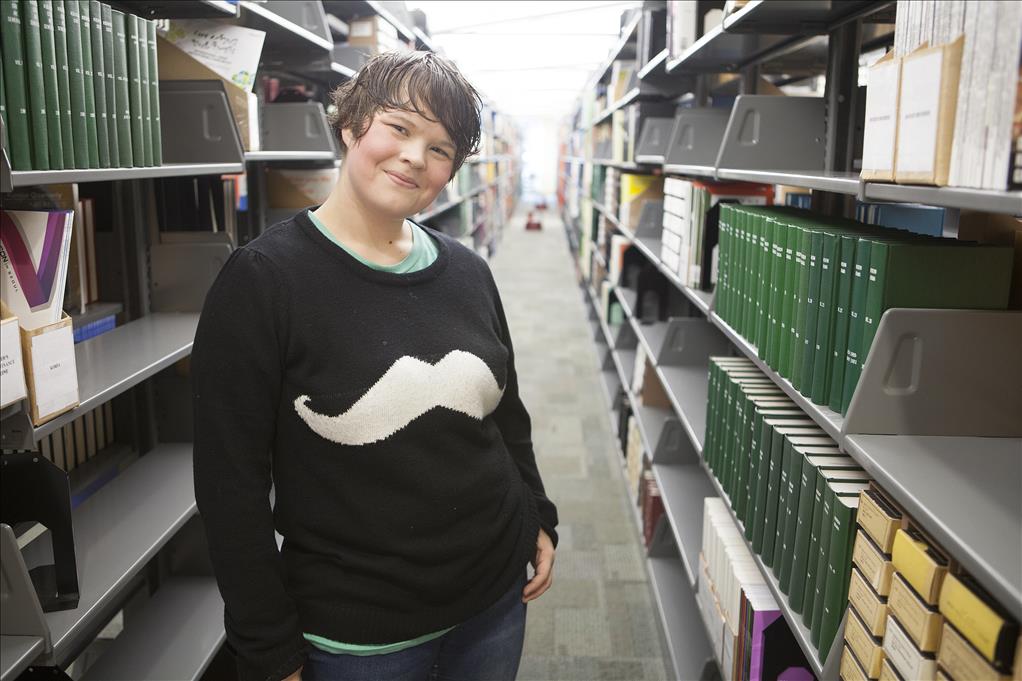Alumni Spotlight: Tammy Zulz
by joey |
The Anchorage-based Arctic Investigations Program (AIP) has a name evocative of a weekly CBS drama, akin to those other alphabet-y government shows like JAG or NCIS. In reality, AIP is a federal field station of the Center for Disease Control (CDC), and the work indeed has a hazardous edge. It's a little like CSI: Alaska, but without the crime.
AIP's laboratories and offices house a team of research nurses, biostatisticians and public health professionals who research and report on the health issues facing Alaska. UAA alumna Tammy Zulz is one of those team members.
Tammy has worked as an epidemiologist at AIP for the past 12 years, securing bacteria samples and researching infectious diseases across the scattered outposts of Alaska. Her role is diverse, challenging and necessary-the remoteness of the region makes health preparedness and disease control more difficult to manage than anywhere else in the country.
She earned her Master of Public Health (M.P.H.) degree in 2007 and, in the years since, has expanded her outreach internationally. Despite her leadership roles across the Arctic Circle, she stays deeply connected to UAA, even returning this year as a volunteer at the M.P.H. hooding ceremonies.
Arctic investigations
The Atlanta-based CDC has operated a field station in Alaska since the mid-1940s, when the federal government first set up shop in the territory to contain a tuberculosis epidemic. "Our main focus here is to work with infectious diseases that affect the peoples of the north, with a focus on health disparities between the Alaska Native population and the rest of the population of this state," Tammy explained.
As a public health analyst, Tammy's work under the AIP's broad umbrella is disease surveillance. Bacteria cultures from across the state arrive in Anchorage, where scientists analyze the organisms and crunch the data into cold statistics. "I take the data once it's been cleaned and I analyze it, write reports, write articles, go to conferences, present the data, and basically get the information out," she said.
Aside from close collaboration with the state health department, the AIP is especially connected with other Arctic nations. Diseases generally behave the same at the equator as they do at 66° north, but the remoteness of the region poses a significant set of challenges. "The issues that can be unique to us, they see as well," Tammy said of AIP's partnerships across the Arctic. These issues include the absence of roads, limited infrastructure, costly transportation, crowded housing, and lack of sewer and water across the circumpolar nations. While Tammy's CDC counterparts in the Lower 48 can drive to their regional labs to pick up specimens, Tammy must make occasional flights across the state and frequent phone calls around the world to obtain the same information.
Public Health 24/7
Despite the challenges of the job, Tammy is clearly passionate about circumpolar health-enough so to work round-the-clock to earn her M.P.H. degree.
She admits her UAA story is a little unique. Unlike most graduate students, she kept the same exact job before, during and after her master's program. "I really did the M.P.H. to enhance my skills and give myself some credentials," she said. "I was lucky-my supervisors saw the benefit of me pursuing the degree and they were very supportive."
Earning her degree was no small task, though. "They will tell you that no one has completed the M.P.H. as quickly as I did," Tammy proudly stated. The online program is aimed at mid-career professionals looking to enhance their career without leaving the state, or even their village. The department, therefore, encourages its working professionals to space out the classes over a span of three or four years. Tammy finished in just over two. "I kind of went galloping through," she laughed. "I basically did public health 24/7." She's not exaggerating. She reached graduation day in half the recommended time by working her full-time job and spending nights as a full-time student for over two years.
Unexpected outcomes
That academic blitz boosted her presence in the larger network of circumpolar health, where her thesis led directly to a co-chair position on an international Arctic collaboration.
Tammy elected to focus on tuberculosis for her thesis project, specifically evaluating a collaborative research group across the Northern nations. "I wanted to do something that would be useful, but at the time I didn't expect it to have the long-term effects that it's had," she said. At the time of her research, the tuberculosis group was stagnating, she said, with very little progress. The circumpolar group sought to include the Russian Federation as a member, particularly since the country had extreme rates of tuberculosis at the time. Through her thesis work, Tammy made contact with the first Russian who agreed to participate in the group.
"The results of my thesis really kick started that group," Tammy said. Even though she doesn't handle tuberculosis cases at the CDC, her research, interest and efforts earned her a co-chair position in the organization. The renewed output of the data- and information-sharing network was not something Tammy's expected, but is certainly one of her prouder achievements. "It's really exciting and something that I did not anticipate would come out of it. I figured I'm going to do this thesis and put it on a shelf and that will be it," she laughed. Instead, years after turning in her completed thesis, Tammy is still actively involved in the group, talking frequently with her co-chair in northern Canada and flying once a year to the annual summit in Copenhagen.
Volunteering at commencement
Through her increased international involvement, Tammy is a perfect example of what an M.P.H. can accomplish for health professionals. She stays actively involved with the UAA program and, most recently, returned for the hooding ceremonies this past weekend, honoring the latest class of M.P.H. students from UAA.
The Saturday hooding ceremony is a specific recognition for graduate students, and supplements UAA's full commencement on Sunday. At the ceremony, each college selects one alumnus to assist the newest crew of graduates, and the College of Health tapped Tammy to be their honorary hooding 'angel' for the class of 2014.
"I was honored to be asked to be an 'angel' at this year's hooding ceremony," Tammy said. After a two-year crush of constant studying, Tammy's hooding ceremony, and the finish line it represented, was a major accomplishment. "My ceremony was one of the highlights of my education," she said. "I'm the first in my family to have an advanced degree. It was a huge deal for me and something that I had been working towards for a long time."
Tammy calls her own hooding ceremony "a blur;" her family and friends claim to have cheered uproariously when her name was called, but she can only recall the tunnel vision of walking across the stage, the crowd muted by her focus. This time around, Tammy was able to enjoy the ceremony and soak up the event, with the spotlight and nerves shifted away from her and onto the latest class of graduates. "It brought back all the emotions I experienced at my own ceremony-the excitement, pride and relief I felt about completing my degree. I highly recommend students take advantage of this opportunity to celebrate their accomplishments," Tammy said.
Even though she's finished with the busy years balancing full-time student with full-time professional, she still stays aggressively involved. She has taught undergraduate public health courses and been a member of the M.P.H. Admissions Committee, she's served on various health associations both nationally and internationally, and she helps edit the M.P.H. alumni newsletter (the latest issue is available here). Volunteering at this year's commencement was just a drop in the bucket.
"I appreciate the opportunity to give back to the program that has given me so much," Tammy said of her motivation to stay involved. "I use the education I received in my job every day and it has provided me with opportunities I never anticipated."
Click here to learn more about the hooding ceremony and read Tammy's advice for the class of 2014.
 "Alumni Spotlight: Tammy Zulz" is licensed under a Creative Commons Attribution-NonCommercial 4.0 International License.
"Alumni Spotlight: Tammy Zulz" is licensed under a Creative Commons Attribution-NonCommercial 4.0 International License.















